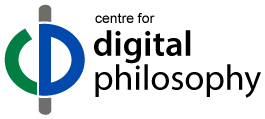- Submit
-
Browse
- All Categories
- Metaphysics and Epistemology
- Value Theory
- Science, Logic, and Mathematics
- Science, Logic, and Mathematics
- Logic and Philosophy of Logic
- Philosophy of Biology
- Philosophy of Cognitive Science
- Philosophy of Computing and Information
- Philosophy of Mathematics
- Philosophy of Physical Science
- Philosophy of Social Science
- Philosophy of Probability
- General Philosophy of Science
- Philosophy of Science, Misc
- History of Western Philosophy
- Philosophical Traditions
- Philosophy, Misc
- Other Academic Areas
- More
Switch to: Citations
References in:
Epistemic Paternalism, Open Group Inquiry, and Religious Knowledge
Res Philosophica 98 (2):261-281 (2021)
Add references
You must login to add references.
|
|
|
In this paper I argue that suspension of judgment is intimately tied to inquiry and in particular that one is suspending judgment about some question if and only if one is inquiring into that question. |
|
|
Short abstract (98 words). Reasoning is generally seen as a means to improve knowledge and make better decisions. However, much evidence shows that reasoning often leads to epistemic distortions and poor decisions. This suggests that the function of reasoning should be rethought. Our hypothesis is that the function of reasoning is argumentative. It is to devise and evaluate arguments intended to persuade. Reasoning so conceived is adaptive given humans’ exceptional dependence on communication and vulnerability to misinformation. A wide range of (...) |
|
|
In this paper I look at belief and degrees of belief through the lens of inquiry. I argue that belief and degrees of belief play different roles in inquiry. In particular I argue that belief is a “settling” attitude in a way that degrees of belief are not. Along the way I say more about what inquiring amounts to, argue for a central norm of inquiry connecting inquiry and belief and say more about just what it means to have an (...) |
|
|
Abstract In this paper I undertake an in-depth examination of an oft mentioned but rarely expounded upon state: suspended judgment. While traditional epistemology is sometimes characterized as presenting a “yes or no” picture of its central attitudes, in fact many of these epistemologists want to say that there is a third option: subjects can also suspend judgment. Discussions of suspension are mostly brief and have been less than clear on a number of issues, in particular whether this third option should (...) |
|
|
|
|
|
According to many accounts of faith—where faith is thought of as something psychological, e.g., an attitude, state, or trait—one cannot have faith without belief of the relevant propositions. According to other accounts of faith, one can have faith without belief of the relevant propositions. Call the first sort of account doxasticism since it insists that faith requires belief; call the second nondoxasticism since it allows faith without belief. The New Testament may seem to favor doxasticism over nondoxasticism. For it may (...) |
|
|
This book presents an original discussion and analysis of epistemic peer disagreement. It reviews a wide range of cases from the literature, and extends the definition of epistemic peerhood with respect to the current one, to account for the actual variability found in real-world examples. The book offers a number of arguments supporting the variability in the nature and in the range of disagreements, and outlines the main benefits of disagreement among peers i.e. what the author calls the benefits to (...) |
|
|
|
|
|
|
|
|
For many religious people there is a problem of doubting various credal statements contained in their religions. Often propositional beliefs are looked upon as necessary conditions for salvation. This causes great anxiety in doubters and raises the question of the importance of belief in religion and in life in general. It is a question that has been neglected in philosophy of religion and theology. In this paper I shall explore the question of the importance of belief as a religious attitude (...) |
|
|
Epistemic paternalism is the thesis that a paternalistic interference with an individual's inquiry is justified when it is likely to bring about an epistemic improvement in her. In this article I claim that in order to motivate epistemic paternalism we must first account for the value of epistemic improvements. I propose that the epistemic paternalist has two options: either epistemic improvements are valuable because they contribute to wellbeing, or they are epistemically valuable. I will argue that these options constitute the (...) |
|
|
A number of formal models, including a highly influential model from Hong and Page, purport to show that functionally diverse groups often beat groups of individually high-performing agents in solving problems. Thompson argues that in Hong and Page’s model, that the diverse groups are created by a random process explains their success, not the diversity. Here, I defend the diversity interpretation of the Hong and Page result. The failure of Thompson’s argument shows that to understand the value of functional diversity, (...) |


